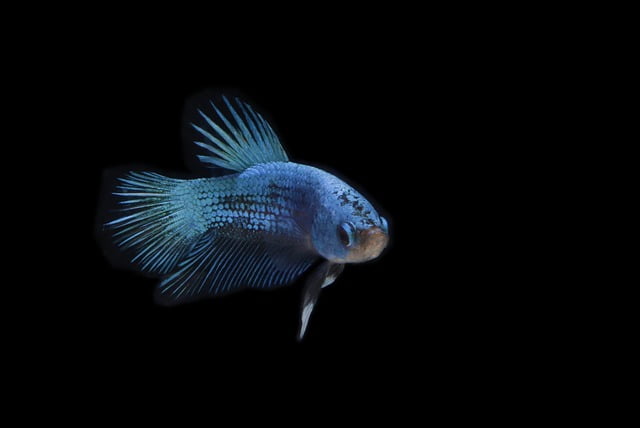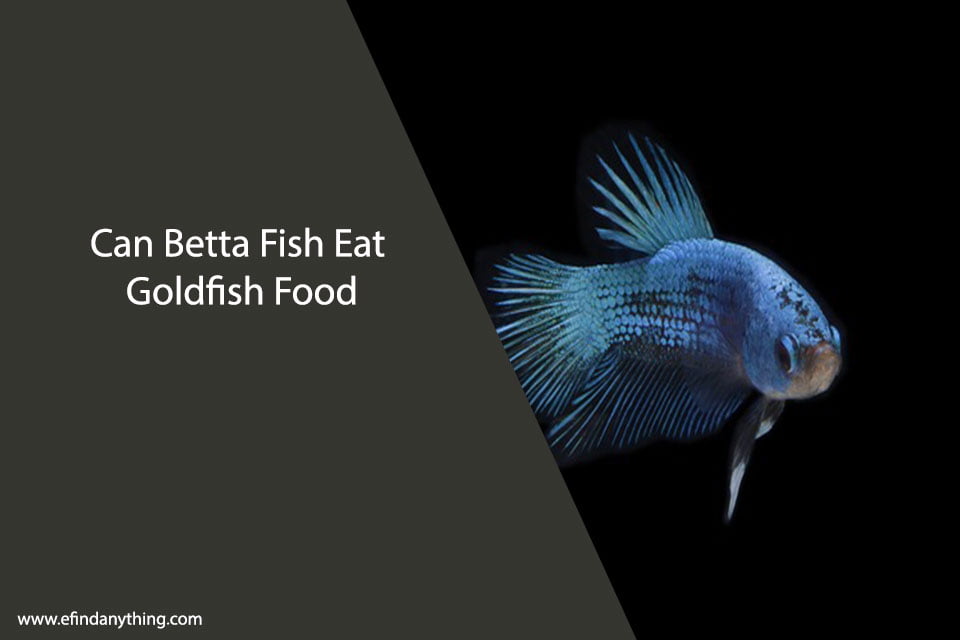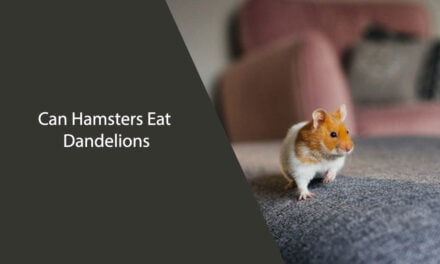Betta fish, also known as Siamese fighting fish, are popular pets due to their vibrant colors and low maintenance. However, when it comes to feeding them, many owners wonder if they can give their betta fish goldfish food. After all, both fish are similar in size and live in similar environments. In this article, we will explore whether or not betta fish can eat goldfish food.
Firstly, it is important to note that betta fish are carnivorous and require a high protein diet. Goldfish food, on the other hand, is formulated for omnivorous fish and contains a lower percentage of protein. While betta fish can survive on a diet of goldfish food, it may not provide them with the necessary nutrients they need to thrive.
Furthermore, goldfish food often contains fillers and grains that betta fish cannot digest properly, leading to digestive issues and potential health problems. It is recommended that betta fish owners stick to feeding their fish a diet specifically formulated for bettas to ensure they are receiving the proper nutrition they need.

Table of Contents
Understanding Betta Fish Diet
Betta fish, also known as Siamese fighting fish, are a popular choice for aquarium enthusiasts due to their vibrant colors and active behavior. As with any pet, it is important to understand their dietary needs to ensure they remain healthy and happy.
In their natural habitat, betta fish are carnivorous and primarily feed on insects and small crustaceans. This means that a diet consisting solely of goldfish food is not suitable for betta fish as it is formulated for omnivorous goldfish and does not provide the necessary nutrients that betta fish require.
A balanced diet for betta fish should consist of high-quality protein sources such as brine shrimp, bloodworms, and daphnia. These can be purchased frozen or live at most pet stores. It is important to note that betta fish have small stomachs and should be fed small amounts two to three times a day.
In addition to protein, betta fish also require fiber and vitamins. This can be achieved through feeding them a variety of vegetables such as peas, spinach, and zucchini. Commercial betta fish pellets can also be used as a supplement to ensure they are receiving all the necessary nutrients.
It is important to avoid overfeeding betta fish as this can lead to health issues such as bloating and constipation. A good rule of thumb is to feed them an amount that they can consume in two to three minutes.
In summary, understanding betta fish diet is crucial for their health and well-being. A balanced diet consisting of high-quality protein sources, vegetables, and commercial pellets is necessary to ensure they receive all the necessary nutrients.
Goldfish Food: What Is It Made Of?
Goldfish food is specifically formulated to meet the nutritional needs of goldfish. It is usually made up of a combination of plant and animal-based ingredients. Some of the common ingredients found in goldfish food include:
- Fish meal: This is a high-protein ingredient made from ground up fish. It is a common ingredient in many types of fish food, including goldfish food.
- Shrimp meal: This is another high-protein ingredient that is commonly used in goldfish food. It is made from ground up shrimp.
- Soybean meal: This is a plant-based ingredient that is used to provide a source of protein in goldfish food.
- Wheat flour: This is a common ingredient used in many types of fish food, including goldfish food. It is used as a binding agent to help the food hold its shape.
- Corn gluten meal: This is a plant-based ingredient that is used to provide a source of protein in goldfish food.
- Spirulina: This is a type of blue-green algae that is often added to goldfish food to provide a source of vitamins and minerals.
In addition to these ingredients, goldfish food may also contain vitamins and minerals to help support the health of your fish. Some common vitamins and minerals found in goldfish food include vitamin C, vitamin E, and calcium.
It is important to choose a high-quality goldfish food that provides a balanced diet for your fish. Look for a food that contains a variety of ingredients, including both plant and animal-based sources of protein. Avoid foods that contain fillers or artificial preservatives.
Can Betta Fish Eat Goldfish Food?
As pet owners, we often wonder if we can feed our fish different types of food. One common question is whether betta fish can eat goldfish food.
Goldfish food typically contains more carbohydrates and less protein compared to betta fish food. Betta fish require a higher protein diet to maintain their health and vibrant colors. Therefore, feeding goldfish food to betta fish is not recommended.
Furthermore, goldfish food typically contains a higher amount of filler ingredients such as wheat, corn, and soy. These ingredients are not easily digestible by betta fish and can lead to digestive issues.
It is important to note that betta fish have specific dietary requirements and should be fed a high-quality betta fish food. This will ensure that they receive the proper nutrients to maintain their health and longevity.
In conclusion, we do not recommend feeding goldfish food to betta fish. It is important to choose a high-quality betta fish food that meets their specific dietary needs.

Potential Risks and Side Effects
Although betta fish can eat goldfish food, there are potential risks and side effects that we need to consider. Here are some of the risks and side effects associated with feeding betta fish with goldfish food:
- Digestive Problems: Goldfish food is formulated for goldfish, which have a different digestive system than betta fish. Feeding betta fish with goldfish food can cause digestive problems such as constipation, bloating, and swim bladder disorder.
- Nutritional Imbalance: Goldfish food does not contain the necessary nutrients that betta fish need to thrive. Feeding betta fish with goldfish food can lead to malnutrition, which can weaken their immune system, stunt their growth, and make them more susceptible to diseases.
- Contamination: Goldfish food may contain harmful bacteria or parasites that can infect betta fish. It is important to choose high-quality goldfish food and store it properly to prevent contamination.
- Overfeeding: Goldfish food is often high in protein and fat, which can lead to overfeeding and obesity in betta fish. Overfeeding can also lead to poor water quality, which can further compromise their health.
In summary, while betta fish can eat goldfish food, it is not recommended due to the potential risks and side effects. It is important to choose high-quality betta fish food that is specifically formulated for their nutritional needs.
Alternative Food Options for Betta Fish
While it is possible for betta fish to eat goldfish food, it is not the most optimal option for their health and well-being. Therefore, it is essential to consider alternative food options for betta fish.
One of the best alternatives to goldfish food for betta fish is high-quality betta pellets. These pellets are specially formulated to provide all the necessary nutrients that betta fish need to thrive. They are also easy to digest and come in a variety of sizes and flavors.
Another great option for betta fish is frozen or live foods, such as bloodworms, brine shrimp, and daphnia. These foods are high in protein and essential fatty acids, which are crucial for betta fish growth and development. However, it is important to ensure that the live or frozen foods are free from harmful bacteria and parasites before feeding them to your betta fish.
In addition to pellets and live/frozen foods, betta fish can also benefit from occasional treats like freeze-dried foods, such as krill or shrimp. These treats are high in protein and can help to provide some variety in your betta fish’s diet.
Overall, while goldfish food may be an option for betta fish, it is not the most optimal choice. Opting for high-quality betta pellets, live/frozen foods, and occasional treats can help to provide your betta fish with a well-rounded and nutritious diet.
Conclusion
After researching and analyzing the nutritional needs of betta fish and comparing them to the ingredients in goldfish food, we have come to a conclusion.
While goldfish food may contain some of the same nutrients that betta fish require, it is not a suitable replacement for betta-specific food. Betta fish have a unique set of dietary requirements that are not met by goldfish food.
Goldfish food is typically formulated with less protein and more carbohydrates than betta food, which can lead to health issues for betta fish. Additionally, goldfish food may contain ingredients that are harmful to betta fish, such as wheat and corn, which can cause digestive problems.
Therefore, we recommend feeding betta fish a high-quality, betta-specific food that is formulated to meet their unique nutritional needs. This will help ensure that your betta fish stays healthy and happy.
In summary, while it may be tempting to feed your betta fish goldfish food, it is not a suitable replacement for betta-specific food. By providing your betta fish with a high-quality, betta-specific diet, you can help ensure that they live a long and healthy life.

Frequently Asked Questions
Can betta fish eat bloodworms?
Yes, betta fish can eat bloodworms. Bloodworms are a great source of protein and are a common food for betta fish. However, it is important to feed them in moderation as too much protein can cause health issues.
What is the best food for betta fish?
The best food for betta fish is a high-quality pellet or flake food specifically made for betta fish. These foods provide a balanced diet with all the necessary nutrients and vitamins. It is important to avoid overfeeding and to vary their diet with occasional treats like freeze-dried or frozen bloodworms.
Can betta fish eat apples?
No, betta fish cannot eat apples. Apples are not a part of their natural diet and can cause digestive issues. It is important to only feed betta fish food that is specifically made for them.
Can betta fish live with other fish?
Betta fish can live with other fish, but it depends on the species of fish and the size of the tank. Betta fish are known for their aggressive behavior and can become territorial. It is important to research and choose tank mates carefully to ensure they are compatible and have enough space to live comfortably.
How often should I feed my betta fish?
Betta fish should be fed small amounts twice a day. Overfeeding can lead to health issues and can also cause water quality problems in the tank. It is important to monitor their eating habits and adjust their feeding schedule as needed.
What food should I feed my betta fish?
Betta fish should be fed a high-quality pellet or flake food specifically made for them. These foods provide a balanced diet with all the necessary nutrients and vitamins. It is important to vary their diet with occasional treats like freeze-dried or frozen bloodworms, but these should only be given in moderation.





